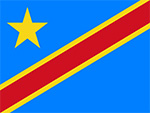Mutual accountability for action
Sanitation and Water for All
(
Partnership
)
#SDGAction53003
Description
SWA’s Mutual Accountability Mechanism (MAM) is the only global accountability process that is dedicated to all stakeholders working in collaboration towards achieving the water, sanitation, hygiene and related targets of the Sustainable Development Goals, as well as realising the human rights to water and sanitation. Since the mechanism was launched in 2018, over 400 global and national commitments have been made, with half of them coming from 60 UN Member States. Commitments are periodically monitored by partners and the first MAM Global Report can be found here.
SWA commits to continue working to implement the Mutual Accountability Mechanism among its partner countries and at the global level.
Furthermore, SWA is putting its accountability mechanism at the disposal of all sector actors, SWA partner or not, to contribute to the tracking and follow-up to the UN 2023 Water Conference and the Water Action Agenda commitments related to water, sanitation and hygiene.
To enable this process, SWA encourages governments, external support agencies, and other non-governmental partners to bring the pledges they made in the context of the UN 2023 Water Conference and the Water Action Agenda to the MAM, so we may include them in our continuous accountability processes.
By bringing their pledges to the SWA Mutual Accountability Mechanism national governments and non-governmental organizations working in the water, sanitation and hygiene sector will be able to:
1. More strongly engage in continuous accountability processes
2. Support engagement with partners who can collaborate with their implementation and mutual review, and
3. Promote opportunities to share their priorities and showcase progress through our High-level Meetings, MAM global reports, and communication channels.
The SWA Mutual Accountability Mechanism process can help strengthen accountability in the sector and sustain momentum after the historic UN 2023 Water Conference.
A human rights principle, accountability is about how promises are translated into action and aspirations into reality. While States ultimately have an obligation to ensure the realization of the human rights to water and sanitation, all stakeholders have a role to play in moving our societies toward the vision laid out in the 2030 Sustainable Development Agenda.
In response to this need, the Sanitation and Water for All partnership created the Mutual Accountability Mechanism in 2018: a tool for partners to commit and hold each other to account for progress in achieving the SDGs’ water and sanitation targets – as well as an opportunity to collaborate, learn and catalyze collective action.
The Sanitation and Water for All partnership is composed by 88 UN Member States, 350+ non-governmental organizations, including approximately 200 civil society organisations, private sector companies, as well as external support agencies such as UN agencies, development agencies, development banks and donors.
Deliverables:
3 MAM Global Reports to be published in 2024, 2027 and 2030
Continuous management of 400+ commitments and progress reports submitted to the SWA Mutual Accountability Mechanism (the # grows continuously)
Commitments showcased during upcoming SWA High-level Meetings
At least 3 impact stories published yearly in SWA’s communication channels
SDGS & Targets
Goal 6
Ensure availability and sustainable management of water and sanitation for all
6.1
By 2030, achieve universal and equitable access to safe and affordable drinking water for all
6.1.1
Proportion of population using safely managed drinking water services
6.2
By 2030, achieve access to adequate and equitable sanitation and hygiene for all and end open defecation, paying special attention to the needs of women and girls and those in vulnerable situations
6.2.1
Proportion of population using (a) safely managed sanitation services and (b) a hand-washing facility with soap and water
6.3
By 2030, improve water quality by reducing pollution, eliminating dumping and minimizing release of hazardous chemicals and materials, halving the proportion of untreated wastewater and substantially increasing recycling and safe reuse globally
6.3.1
Proportion of domestic and industrial wastewater flows safely treated
6.3.2
Proportion of bodies of water with good ambient water quality
6.4
6.4.1
Change in water-use efficiency over time
6.4.2
Level of water stress: freshwater withdrawal as a proportion of available freshwater resources
6.5
By 2030, implement integrated water resources management at all levels, including through transboundary cooperation as appropriate
6.5.1
Degree of integrated water resources management
6.5.2
Proportion of transboundary basin area with an operational arrangement for water cooperation
6.6
6.6.1
Change in the extent of water-related ecosystems over time
6.a
6.a.1
Amount of water- and sanitation-related official development assistance that is part of a government-coordinated spending plan
6.b
Support and strengthen the participation of local communities in improving water and sanitation management
6.b.1
Proportion of local administrative units with established and operational policies and procedures for participation of local communities in water and sanitation management
SDG 14 targets covered
| Name | Description |
|---|
Deliverables & Timeline
Resources mobilized
Partnership Progress
Feedback
Action Network

Timeline
Entity
SDGs
Region
- Africa
- Europe
- Asia and Pacific
- North America
- Latin America and the Caribbean
- West Asia
- Global
Other beneficiaries
350+ non-governmental organizations, including approximately 200 civil society organisations, private sector companies, as well as external support agencies such as UN agencies, development agencies, development banks and donors.
More information
Countries
























































Contact Information
Catarina, CEO

